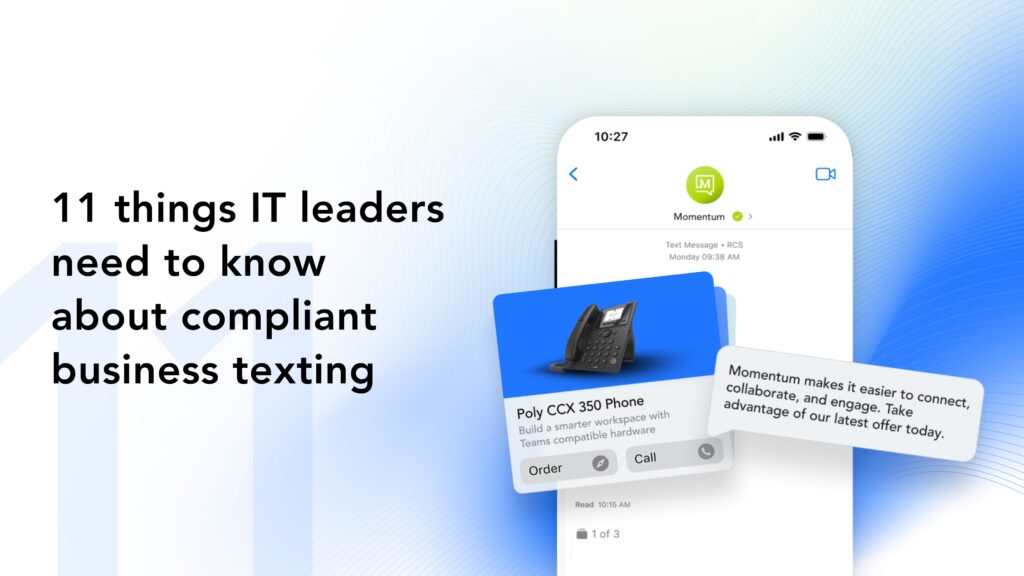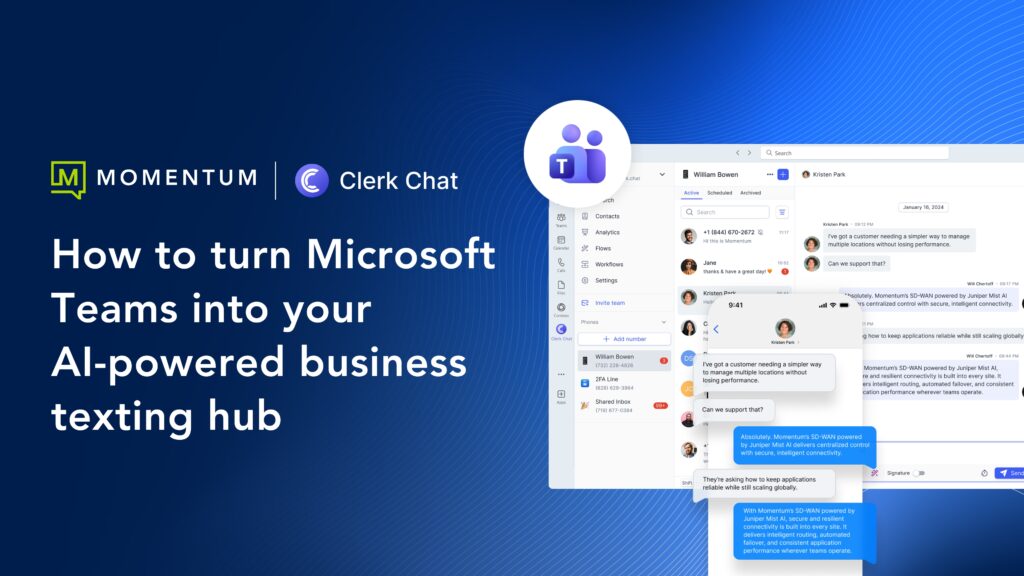Healthcare’s ongoing digital transformation has greatly improved access to essential tests, medical services, and more.
Much of this transformation has been driven by new technologies, evolving patient expectations, and changing regulatory requirements.
All of this has made it harder than ever for healthcare providers to remain competitive without compromising on the quality of care provided, keeping patient data secure, and adapting to frequent changes in the industry.
For many healthcare providers, managed services help level the playing field by streamlining processes, boosting visibility across the organization, and improving patient relationships.
In this article, we’ll unpack how managed solutions like Microsoft Teams, cloud voice, and data analytics can enable healthcare organizations to achieve operational excellence while providing the highest level of patient care.
Enhance Communication with Unified Communications
Effective communication is one of the main building blocks of effective healthcare. A typical healthcare organization needs established lines of communications between admin staff, doctors, and patients.
Platforms like Microsoft Teams can improve collaboration and patient response times with popular features like built-in dialing, instant messaging, video conferencing, appointment booking, and secure file sharing.
For example, care teams can conduct virtual meetings to discuss treatment plans, ensuring all members are aligned on patient care strategies. These tools also allow easy access to patient records and treatment guidelines, empowering providers to offer personalized care and fostering a collaborative environment.
Improve Patient Experience with Reliable Connectivity
Reliable internet access is vital in healthcare settings where the most up-to-date information must always be available.
Increased bandwidth ensures smooth connectivity during telehealth appointments, consultations, and online patient follow-ups. Meanwhile, solutions like SD-WAN can enhance network performance, preventing disruptions during patient interactions.
For example, consistent connectivity guarantees that telehealth patients receive uninterrupted, high-quality care, enhancing their overall experience and satisfaction. This reliability is essential for building trust and fostering long-term patient relationships. It also demonstrates that your organization is professional and reliable.
Protect Conversations with Call Recording
Strict regulations like HIPAA stand as a reminder that security and data privacy isn’t optional in healthcare. Implementing call recording solutions provides a safeguard by capturing important conversations while ensuring compliance with regulations like HIPAA.
These recordings can also serve as training resources for staff, enabling them to review and improve their communication with patients. For example, healthcare professionals can analyze interactions to refine their approaches, ultimately enhancing patient engagement and service quality.
Boost Responsiveness with Call Analytics
Healthcare is complex by nature. Having the ability to understand what your patient journey looks like can help you to identify potential areas of improvement.
Call analytics provides insights into patient interactions, tracks call volumes, and response times. By analyzing this data, healthcare organizations can identify trends and optimize their processes to ensure every patient inquiry is addressed promptly.
For example, call analytics may show that many patients contact the office during certain hours, allowing a practice to adjust staffing to ensure adequate coverage. A small change like this can greatly impact patient satisfaction and care continuity.
Enable Scalable Communications with Cloud Voice
Cloud voice solutions streamline how healthcare organizations communicate. By leveraging these technologies, providers can improve connectivity among staff and patients while reducing costs associated with traditional phone systems.
Cloud voice solutions add more flexibility, allowing healthcare organizations to manage their communication systems remotely. This capability is particularly beneficial in situations requiring rapid adaptation, such as during public health emergencies. Providers can scale their communication resources based on demand, ensuring that patient care remains uninterrupted.
Promote Effective Collaborate with Microsoft Teams
Collaboration is everything in modern healthcare. Receptions need to book appointments and update patients, doctors need up-to-date information when examining patients — the list goes on.
Microsoft Teams offers powerful tools to support all of these interactions. Shared workspaces allow healthcare providers to work together on patient care plans, case studies, and research initiatives. Creating dedicated channels for different specialties or patient populations helps keep discussions organized and focused.
For instance, a team can establish a channel for pediatric care where providers can share best practices, discuss challenges, and access educational resources.
Integration with tools like Planner and SharePoint enables efficient task management and document sharing, enhancing workflow and accountability among team members.
Ensure Network Security and HIPAA Compliance
Sensitive personal and medical data is present during all stages of healthcare. Add to that strict regulations like HIPAA, and it’s clear why robust network security is critical.
Managed solutions can offer advanced security features that protect patient information, maintain trust, and minimize the risk of violating HIPAA.
Implementing comprehensive security protocols safeguards systems against cyber threats, ensuring patients feel secure in their healthcare interactions.
Make Data-Driven Decisions with Business Intelligence Tools
Healthcare professionals must make important, life-changing decisions every day. Having access to the right data, insights, and business intelligence tools helps your teams make informed decisions.
Healthcare organizations already collect a lot of information about their patients through the services they provide. Healthcare providers can use business intelligence tools to gain new insights into patient outcomes, treatment trends, and operational efficiencies. This information empowers healthcare professionals to make data-driven decisions, optimize resource allocation, and tailor services to meet patient needs.
For example, hospitals can analyze admission data to identify peak times and allocate staff accordingly, improving service delivery and patient care quality.
Put the Patient Experience First with the Right Technology Partner
Healthcare providers are constantly looking for new ways to improve patient care and collaboration. Embracing the right managed solutions can make these goals possible.
By leveraging popular solutions like Microsoft Teams, SD-WAN, call analytics, call recording, cloud voice, and business intelligence — healthcare professionals can streamline internal operations, improve patient relationships, and boost visibility across the organization.
At Momentum, we support our healthcare clients by helping them identify and deploy innovative solutions that address healthcare’s biggest challenges. By fostering collaboration and embracing technology, we drive improved patient outcomes and help healthcare providers achieve operational excellence.
Looking to maintain your competitive edge while improving patient outcomes? Get in touch today to see how Momentum can help you design, deploy, and support the managed services you need to compete.


